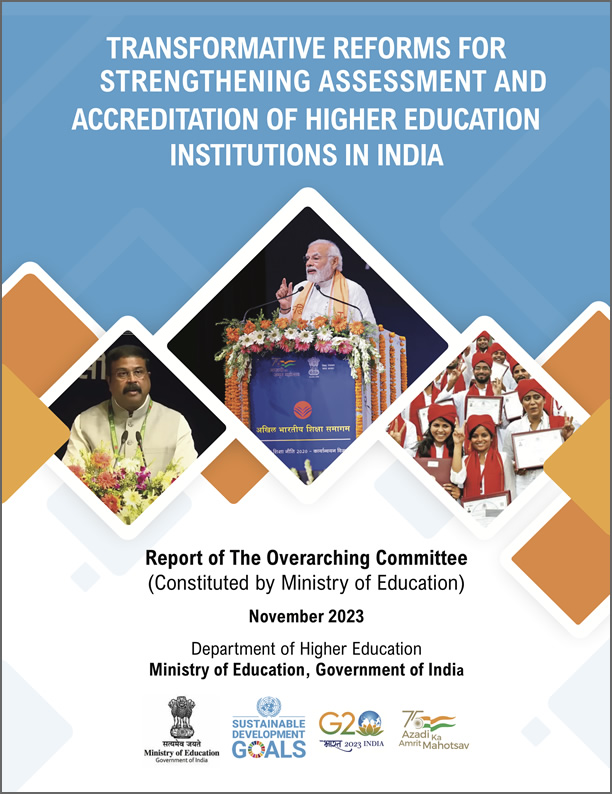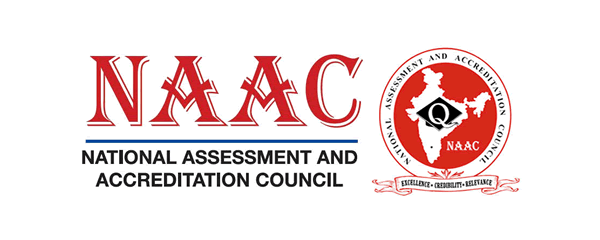« UNESCO releases a report entitled "Enhancing Youth Participation in Urban Governance through City Youth Councils." | Main | 2024 GRAMMYs: Taylor Swift makes GRAMMY History with Fourth Album of The Year Win For 'Midnights' »
February 4, 2024
The National Assessment and Accreditation Council (NAAC) in India announces Significant Reforms in the Accreditation of Higher Education Institutions.
- UPDATED -

Photo: The Cover Page of the Report of the Overarching Committee constituted by the Ministry of Education.

Attention: All Universities and Colleges in India!
You will soon receive one of the following two Tags:
Either “ACCREDITED” or “NOT ACCREDITED”
So get ready!
New Delhi, India, January 29, 2024 — The Ministry of Education of the Government of India has created a committee headed by Dr. K. Radhakrishnan, the former Chairman of ISRO. The committee has suggested comprehensive reforms to enhance the assessment and accreditation of higher education institutions in India.
The National Assessment and Accreditation Council (NAAC) plays a crucial role in assessing and accrediting higher education institutions in India. Their work is essential because it ensures that students receive a quality education and that universities and colleges meet specific standards.
NAAC has declared that they are implementing significant reforms in the accreditation process.
It has proposed reforms to improve the periodic approval, assessment, accreditation, and Ranking of all higher education institutions (HEIs) in India. These reforms aim to align with the vision of NEP 2020 and establish a simple, credible, objective, and rationalized system for approving, accrediting, and ranking HEIs. The system will be technology-driven, minimizing manual involvement to ensure transparency and integrate stakeholder inputs. The recommendations include mentoring and incentivizing programs encouraging HEIs to improve their accreditation levels, eminence, significance, and global recognition.
The recommendations for the Indian higher education system include the following:
Binary Accreditation (either Accredited or Not Accredited) rather than grades to encourage all the institutions to get board in the accreditation process, thereby creating a quality culture in the higher education system. The binary accreditation also aligns with the best practices of many leading countries worldwide.
Maturity-based graded accreditation to enable institutions to improve and position themselves globally.
Metrics will focus on processes, outcomes, and impact across different attributes of HEIs.
One Nation One Data Platform for integrity and transparency in handling institutional data.
Customized Ranking based on stakeholders such as industry, funding agencies, and students.
During its 104th meeting on January 27, 2024, the Executive Committee of the National Assessment and Accreditation Council (NAAC) decided that the recommended reforms would be implemented in two stages. In the first stage, binary accreditation will be executed within the next four months. In the second stage, maturity-based graded levels will be enforced by December 2024.
• It means that all universities and colleges in India will soon receive a tag indicating their accreditation status - either “Accredited” or “Not Accredited.”
By comprehensively implementing all the recommendations before the end of 2024, the Indian higher education system will transform and enhance the quality and credibility of Indian institutions, contributing to the socio-economic leadership of India.
Source: NAAC
|GlobalGiants.Com|







Edited & Posted by the Editor | 10:22 PM | Link to this Post







